SUMMARY
This is AI generated summarization, which may have errors. For context, always refer to the full article.
Legal experts are raising issues against the pronouncement of Interior Secretary Eduardo Año that police will conduct house-to-house search for coronavirus-positive persons so they can be transferred to government quarantine facilities. Among the issues are the rights to privacy and to be secure in one’s house, as well as potential vulnerabilities to a warrantless arrest.
Año said on Tuesday, July 14, “With the help of the LGU (local government unit) and the PNP (Philippine National Police), we will go house-to-house and will bring the positive cases to our COVID isolation facilities.”
Justice Secretary Menardo Guevarra said on Wednesday, July 15, that the house-to-house plan had not been discussed yet by the Inter-Agency Task Force (IATF). Guevarra said he was not consulted on the legality of the plan.
Rights to privacy and security of abode
The Commission on Human Rights (CHR) said the plan “is susceptible to overreach in terms of guaranteeing the right to privacy and right of individuals to be secure in their abode.”
Section 2, Article III, of the Constitution provides for the “the right of the people to be secure in their persons, houses, papers and effects against unreasonable searches and seizures of whatever nature and for any purpose.”
Without saying that the plan was legal, Guevarra said that, should it be approved, it should be health workers, not policemen, conducting the house-to-house search.
“Should the IATF agree there is a need for a house-to-house search of COVID-infected persons, it should be the barangay health workers, and not police officers, who should do that. Health workers are in a better position to determine if transfer to a government quarantine facility is appropriate,” Guevarra said.
The Duterte administration’s house-to-house drug surveillance, which was supposed to be headed also by barangay officials, included policemen in their teams for security purposes, but residents said these had resulted in harassment and intimidation.
Asked if the IATF will insist on zero presence by the police to avoid similar incidents for the search for coronavirus patients, Guevarra said, “We’ll have to discuss that at the IATF meeting.”
“In the case of search for drug offenders, the objective is the suppression of a crime, that’s why police officers are logically involved. In the case of COVID-19, the objective is the suppression of an infectious disease, which is not a crime, so health workers and medical personnel should be at the forefront of any government action,” Guevarra said.
Republic Act 11332
Department of Justice (DOJ) spokesman Justice Undersecretary Markk Perete later clarified that what Guevarra meant was that it’s the disease itself that is not a crime, not the suppression of a disease.
This is an important distinction because the DOJ itself has cited Republic Act 11332 as basis for arrest even without warrants for those who violate quarantine measures. RA 11332 punishes the non-reporting of notifiable diseases – or suppression of the disease.
In fact, Guevarra himself cited RA 11332 as the “ample legal basis for transferring COVID-infected persons to government quarantine facilities if they are incapable of voluntarily isolating themselves.”
“Under the law on mandatory reporting of notifiable diseases, it is the duty of the person afflicted or his family to report or give notice of his communicable disease to prevent any contagion. On the other hand, it is the duty of the government, for public health reasons, to place the afflicted person in a quarantine facility if there is no adequate isolation area in such person’s home,” said Guevarra.
Warrantless arrests
Section 9(D) of RA 11332 punishes the non-cooperation of persons and entities that should report or respond to notifiable diseases. Section 9(E) punishes the non-cooperation of persons “affected by the health event of public concern.”
Human rights lawyers have slammed the use of this “broad law” to justify arrests during the pandemic.
These provisions have been used by policemen – and prosecutors – to justify warrantless arrests of those who violate quarantine measures. One of the valid grounds for a warrantless arrest is getting caught in the act.
So, in quarantine violations, for example the non-wearing of a mask or going out without an essential task during the stricter form of quarantine meant that the person was caught in the act of violating either Section 9(d) or Section 9(e).
Asked if that can be invoked to arrest without warrant a coronavirus positive person who refuses to move to a government facility, Perete said: “That is an interesting question and one that is best decided when an actual case presents itself before the appropriate forum.”
The National Union of Peoples’ Lawyers (NUPL) has called out this plan as being “prone to abuse.”
“With a government that has emboldened its own uniformed personnel to violate human rights with impunity, how can we be sure that the police will not abuse this new power to intrude into the privacy of our homes and encroach upon our liberties, targeting those who have been vocal with their grievances and criticisms of the government’s callous neglect of the people’s livelihood, health and lives?” the NUPL said. – Rappler.com
Add a comment
How does this make you feel?
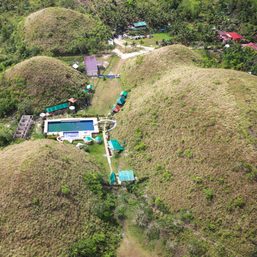
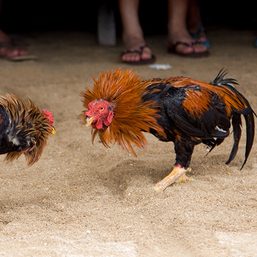
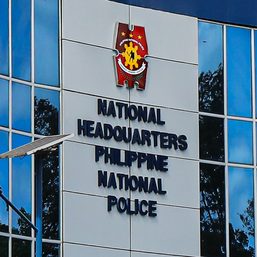
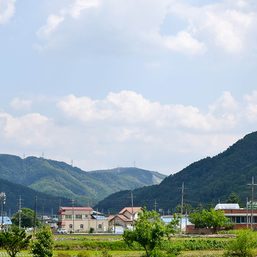
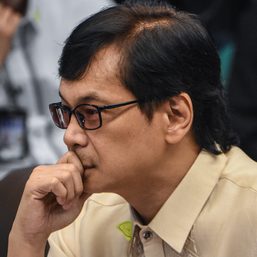
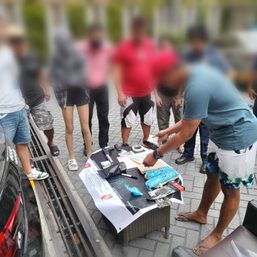
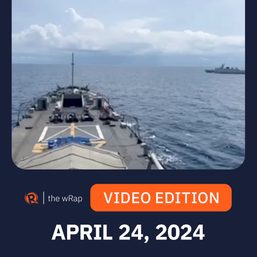
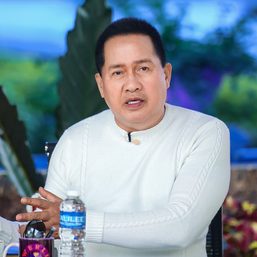
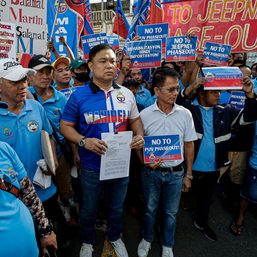
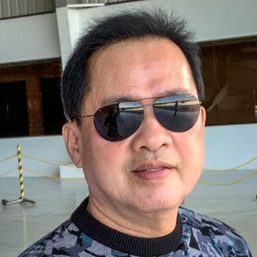
There are no comments yet. Add your comment to start the conversation.